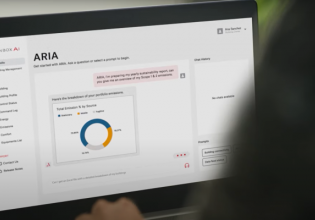M
Michael Griffin
On September 11, 2002 04:40 pm, Alex Pavloff wrote:
<clip>
> I am of the firm belief that to make a project sucessful, you've got to
> spend all your working hours on it.
>
> Case in point -- your Puffin PLC project has been going since (I
> believe) December 1999, and yet you are still, according to your home
> page, in pre-alpha. Imagine what one of your developers could have done
> if he could have spent all his time on developing the
> LinuxPLC/PuffinPLC/MAT.
> Major projects cannot be done in "Spare Time".
<clip>
To change the subject slightly, you seem to have some idea of the magnitude of the job involved in writing a soft logic system. This has sparked a question in my mind about a somewhat related issue. Would you (or anyone else) have a rough idea of how many man hours is involved in writing a usable soft logic system? Assume the following:
- Ladder functionality equivalent to a typical low end PLC.
- With on-line monitoring, but no on-line programming.
- Programming software has features typical of low end PLC.
- Support only one type of I/O system.
- Assume whatever development tools and target O/S you think are suitable.
- The development personnel work on the project full time.
- No user documentation.
Also, what would you guess for ongoing development and maintenance costs once the first release is out?
I am aware of several companies which have written their own proprietary soft logic systems to control machinery which they build (they don't sell the soft logic system except as part of the machine).
I'm not a big fan of any of these because they are all different from one another, have limited (or no) support, and not a single one I have seen has any user manuals at all. Many of them also tend to cut corners on reliable
hardware to save money (but that is another issue).
An obvious risk for the customer with these ultra-proprietary systems is that if the originating company later decides they don't want to write their own software after all, you are stuck with an orphan system. It also gives you vendor "lock-in" problems which makes conventional PLCs look open (you're pretty much stuck with the original machine builder for future modifications).
I've been curious as to how much money these machine companies may have sunk into their proprietary soft logic systems. It would give me an idea as to how much weight to put on their arguements that they came up with their own
system for technology reasons, and how much of it was actually because they thought they could save money on software licenses.
I guess the type of systems I am describing above are about as opposite from open control as you can get, but it is something that exists and should be talked about.
************************
Michael Griffin
London, Ont. Canada
************************
<clip>
> I am of the firm belief that to make a project sucessful, you've got to
> spend all your working hours on it.
>
> Case in point -- your Puffin PLC project has been going since (I
> believe) December 1999, and yet you are still, according to your home
> page, in pre-alpha. Imagine what one of your developers could have done
> if he could have spent all his time on developing the
> LinuxPLC/PuffinPLC/MAT.
> Major projects cannot be done in "Spare Time".
<clip>
To change the subject slightly, you seem to have some idea of the magnitude of the job involved in writing a soft logic system. This has sparked a question in my mind about a somewhat related issue. Would you (or anyone else) have a rough idea of how many man hours is involved in writing a usable soft logic system? Assume the following:
- Ladder functionality equivalent to a typical low end PLC.
- With on-line monitoring, but no on-line programming.
- Programming software has features typical of low end PLC.
- Support only one type of I/O system.
- Assume whatever development tools and target O/S you think are suitable.
- The development personnel work on the project full time.
- No user documentation.
Also, what would you guess for ongoing development and maintenance costs once the first release is out?
I am aware of several companies which have written their own proprietary soft logic systems to control machinery which they build (they don't sell the soft logic system except as part of the machine).
I'm not a big fan of any of these because they are all different from one another, have limited (or no) support, and not a single one I have seen has any user manuals at all. Many of them also tend to cut corners on reliable
hardware to save money (but that is another issue).
An obvious risk for the customer with these ultra-proprietary systems is that if the originating company later decides they don't want to write their own software after all, you are stuck with an orphan system. It also gives you vendor "lock-in" problems which makes conventional PLCs look open (you're pretty much stuck with the original machine builder for future modifications).
I've been curious as to how much money these machine companies may have sunk into their proprietary soft logic systems. It would give me an idea as to how much weight to put on their arguements that they came up with their own
system for technology reasons, and how much of it was actually because they thought they could save money on software licenses.
I guess the type of systems I am describing above are about as opposite from open control as you can get, but it is something that exists and should be talked about.
************************
Michael Griffin
London, Ont. Canada
************************






